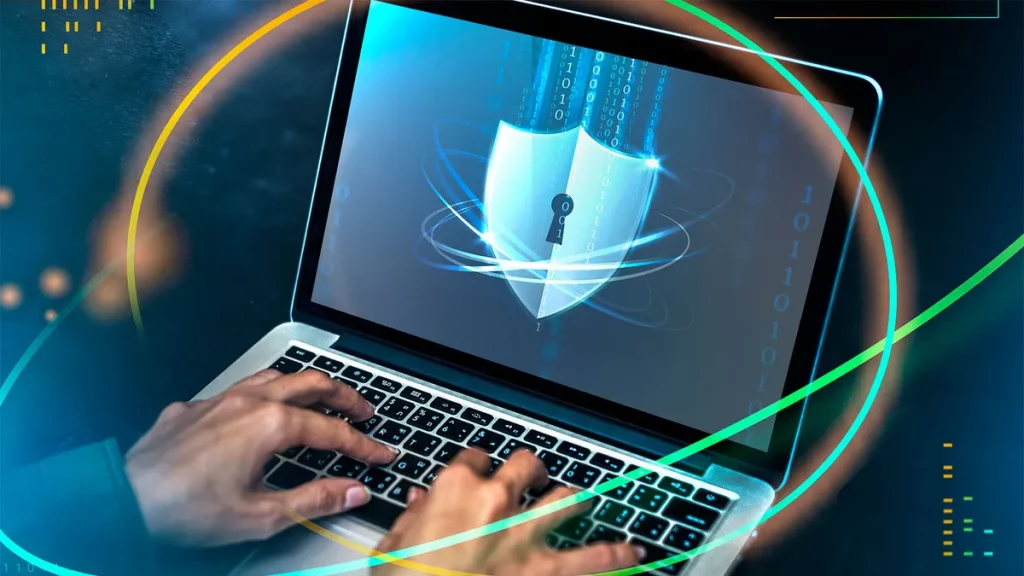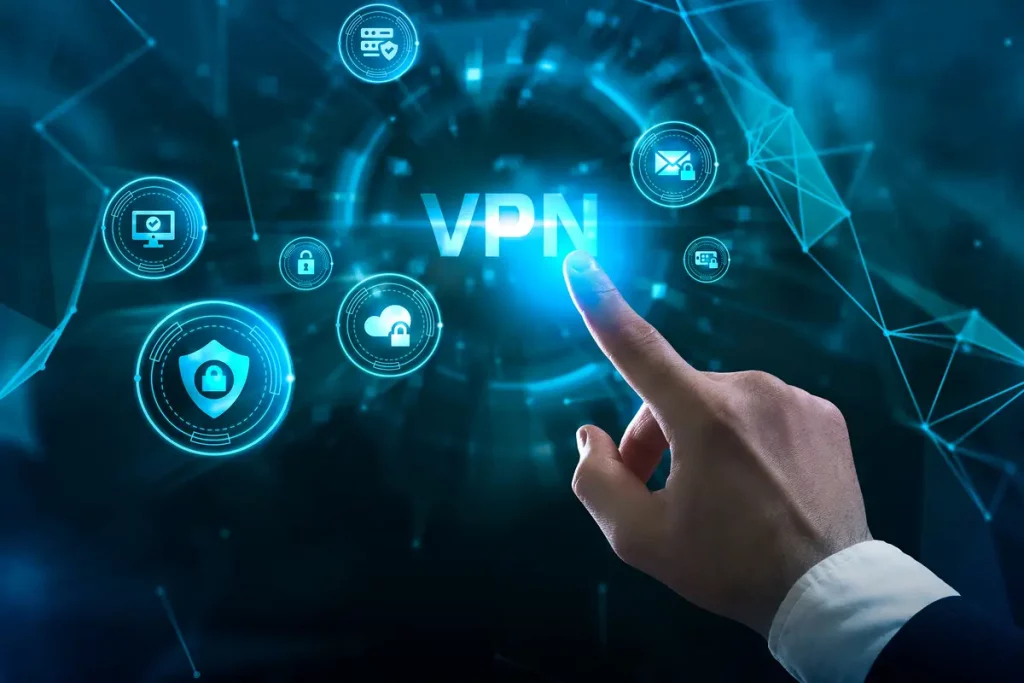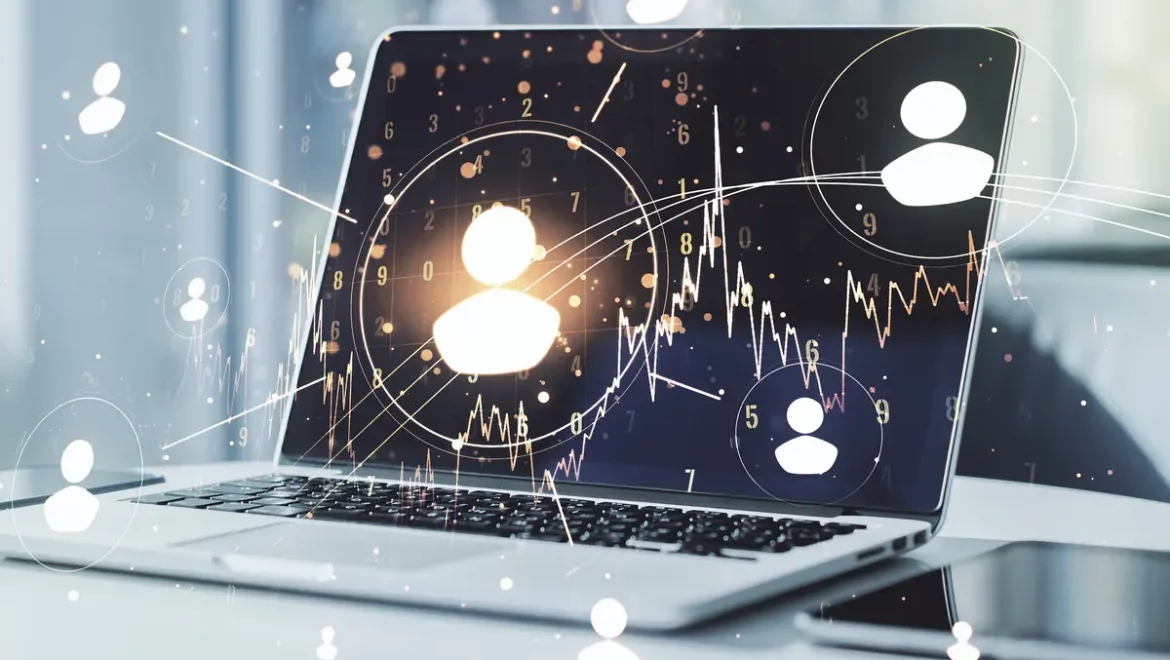The internet has become an integral part of our lives, allowing us to connect with people and information from all corners of the world. However, this increased connectivity also means that we are now more vulnerable to cyber threats. Protecting your data and privacy is essential when it comes to using the internet, and one of the best ways to do this is by using a virtual private network (VPN). In this article, we will explore the role of VPNs online, including what they are, how they work, their different levels of security, and how you can use them to secure your network connection. Whether you’re a professional working remotely or just someone who wants to browse safely online – understanding the importance of VPNs is key!
Connecting to a VPN: An Overview
Connecting to a virtual private network (VPN) is an important step for anyone looking to protect their online identity and data. A VPN provides an extra layer of security by masking your IP address, encrypting your internet traffic, and hiding your browser fingerprinting from surveillance. It also allows you to access company networks and public Wi-Fi safely, as well as bypass regional restrictions on certain websites. By connecting to a VPN, you can enjoy added protection against cyber threats such as malicious software or hackers trying to gain access to your device. Additionally, a VPN can be used by remote employees or workers who need access to their corporate network while they’re away from the office. All in all, having a secure connection through a VPN service is essential in today’s digital age.
When it comes to protecting your online identity and data, a secure connection through a VPN service is essential. Now that you know the importance of having a VPN, let’s look at how you can install one on your smart device or mobile device!

Installing a VPN Service Provider on Your Smart Device or Mobile Device
Installing a VPN service provider on your smart device or mobile device is the best way to ensure your online security and privacy. A virtual private network (VPN) works by encrypting all of your internet traffic, which prevents malicious software from accessing your data or tracking your online activities. By connecting to a secure VPN server, you can also access company networks and public Wi-Fi safely, as well as bypass regional restrictions on certain websites.
The process of setting up a VPN on your device is relatively straightforward. All you need to do is find a reliable service provider that offers the type of connection you need, create an account with them, and then download their app onto your device. Once the app is installed, simply enter the login credentials for the account and connect to the secure server provided. After that, all of your internet activity will be encrypted and routed through this secure tunnel, allowing you to browse safely no matter where you are.
Understanding the Different Levels Of Security With VPNs
The level of security you get with a VPN greatly depends on the type of service you are using. Free VPNs typically provide basic encryption, which is enough to protect your data from most threats. However, if you need to access company networks or browse sensitive information, then it is important to invest in a more secure solution. Premium VPNs offer an extra layer of protection by encrypting all traffic sent over the network and using browser fingerprinting techniques to prevent malicious software from accessing your data. This provides a higher level of security than traditional methods, allowing you to securely access corporate networks and even remote employees or workers who may be connecting from outside of your office. With the added security provided by premium VPNs, you can rest assured that your sensitive data is safe from prying eyes and hackers.
VPNs offer an extra layer of security that can help to keep your data safe and secure, without breaking the bank. But what kind of basic level of security can you expect? Keep reading to find out!
Basic Level of Security
A basic level of security can be expected when using a Virtual Private Network (VPN). VPNs use encryption to protect your online activities, by creating a secure tunnel between your device and the internet. Encryption scrambles your data as it travels through this tunnel, making it unreadable to anyone who may be attempting to intercept it. Furthermore, all traffic sent over the VPN is encrypted, meaning that even if someone were able to access your internet connection, they would not be able to see any of your internet activity or data. Additionally, many VPN services also offer additional features such as kill switches which cut off the user’s internet connection if the VPN fails, ensuring that no confidential information is exposed. As such, a basic level of security can be expected when using a virtual private network, allowing users to access public networks without compromising their privacy or security.
Extra Layer of Protection
Using a Virtual Private Network (VPN) provides an extra layer of protection for your online activities and data. This extra layer of security is achieved through encryption, which creates a secure tunnel between your device and the internet. All traffic sent over the VPN is encrypted, making it unreadable to anyone attempting to intercept it. Additionally, VPNs offer additional features such as kill switches that cut off the user’s internet connection if the VPN fails. This ensures that no confidential information is exposed in case of any technical issues with the service. Furthermore, many companies and organizations use corporate networks and remote workers rely on VPNs to protect their network connection when accessing sensitive information from their mobile devices or smart devices while using public wi-fi hotspots. Finally, VPNs can also help protect against browser fingerprinting, which is used by websites to track users across different websites. By using a virtual private network, you can add an extra layer of security for your online activities and data.
Popular Uses For VPNs
VPNs are becoming increasingly popular as a means of securing data and protecting online activity. They can be used to create secure networks between computers and servers, allowing users to access the internet without having to worry about their data being intercepted or compromised. Additionally, they can also be used to mask a user’s IP address, making it difficult for websites or hackers to track users’ online activities. Businesses often use VPNs to protect company networks from external threats, while remote employees rely on them to securely access corporate information from outside the office. Finally, individuals may also use VPNs for activities such as streaming content that is not available in their country or region. With its broad range of features and benefits, it is no surprise that VPNs are now widely used by businesses and individuals alike.
VPNs have become an invaluable tool for individuals and businesses alike, to securely access the internet, protect confidential data, and even stream content from around the world. And that’s just the beginning: next up, we’ll explore some of the traditional functions that a best VPN blog performs!

Traditional Functions That A VPN Performs
A virtual private network (VPN) is a secure method of connecting computers and servers over the internet. It creates an encrypted connection between two points, allowing users to access the internet without their data being visible or vulnerable to attack. VPNs are commonly used by businesses as a way of providing remote workers with secure access to corporate networks, as well as by individuals who want to keep their online activity hidden from prying eyes. Additionally, they can be used to mask a user’s IP address and bypass geographical restrictions. Ultimately, VPNs offer both users and businesses a higher level of security and privacy when accessing the web.
Remote Employees and Workers
Remote employees and workers are increasingly relying on virtual private networks (VPNs) to perform their work. VPNs provide a secure connection between two points over the internet, allowing remote workers to access corporate networks without their data being visible or vulnerable to attack. This provides an extra layer of security for businesses that want to protect their sensitive data from cyber-attacks and other malicious threats. Additionally, it can help remote workers to bypass geographical restrictions, such as censorship or government surveillance. With a VPN, companies can ensure that their remote employees have secure access to the company network and that their online activity is kept anonymous and private. Moreover, with the rise of smart devices and public wi-fi networks, VPNs can also protect users from browser fingerprinting and other forms of online tracking. By using a VPN service, companies can ensure that their remote workers stay secure while they work remotely without compromising their productivity or efficiency.
Online Activities and Internet Traffic Monitoring
Internet activity and traffic monitoring are two critical components of any organization’s security strategy. This is especially important when dealing with remote employees and workers, who may be accessing the corporate network from a variety of devices and locations. By monitoring their internet activities, companies can ensure that their networks remain secure against potential cyber-attacks or other malicious threats. Additionally, it provides an opportunity to detect unusual or suspicious behavior that could be indicative of a security breach. Moreover, by monitoring internet traffic, organizations can identify any potential bottlenecks or areas of congestion in their network connection that could be hindering productivity or efficiency. By combining both internet activity and traffic monitoring, companies can ensure that their remote employees have secure access to the corporate network and that their online activity remains safe from external threats.
Conclusion
In conclusion, a Virtual Private Network (VPN) is an effective tool for ensuring that your data and online activities remain private and secure. Encrypting all of your internet traffic and routing it through a secure network, can help you avoid potential threats like hackers and malicious websites while still providing fast speeds and performance. Additionally, VPNs can also be used to bypass regional restrictions or censorship by allowing users to access content that might otherwise be blocked in their area. Ultimately, with some basic research and an understanding of how VPNs work, users can easily enjoy the enhanced level of security they provide without sacrificing any speed or performance.
